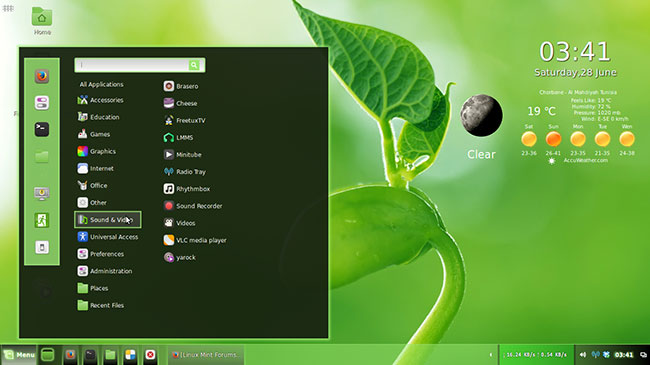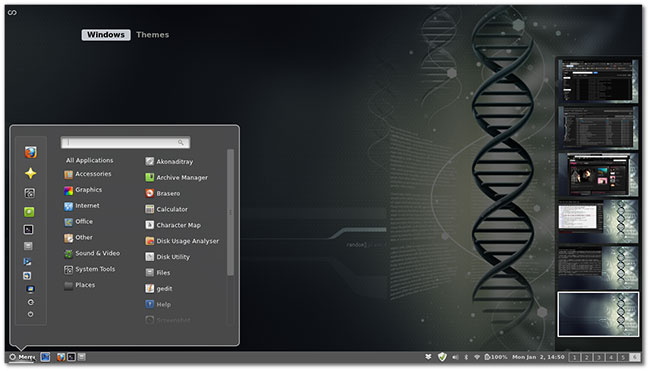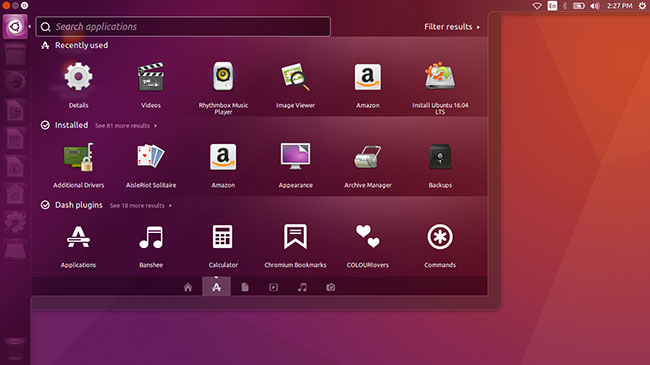History of Linux operating system, a strange development path
When it was released on August 25, 1991, Linux was no more than a small hobby for 21-year-old Linus Torvald. Now the Linux community estimates there are 86 million users , becoming the backbone of many large businesses, used by many governments and present on many devices worldwide.
The Linux operating system was originally just an alternative to the platform structures used on mainframe computers and back-end systems in the enterprise. Now it has grown, becoming the main platform for companies from small to large. According to Meike Chabowski, strategist at Suse, Linux is brought to more hardware platforms (hardware platforms) than any operating system, thanks to the popularity of Android operating systems .
He told LinuxInsider: " Today, Linux accounts for the largest number of kernel for all operating systems in the world. Linux is also the largest operating system on any server and over 99.4%. Top 500 supercomputers You will also see Linux embedded on a variety of devices, machines from cars, network routing to automated control devices, entertainment or medical devices like X-rays ".
"Many people don't even know they're using it. Linux is everywhere," Chbowski said.
Full of surprises
Linux is a revolutionary idea. It provided earlier convenience that was not available in the Minix and Unix operating systems used at the university where Suse's technical director, Ralf Flax, attended. He told LinuxInsider that a big plus was that he could run it on his PC at home. What surprised Flaxa is that Linux has grown very quickly in a short time. " For example, at the beginning, you were able to use multiples, meaning that with a key combination, users could switch to the second or third terminal ."

" It is a great feature, especially at that time. There is no graphical environment with many different windows, " he said. But the surprise did not stop there.
" I started Linux merely as a hobby because I wanted to and need to use it for computer science research ." " The moment I realized I could turn my hobby into work was really a milestone for Linux, " Flaxa repeated. Easy hardware switching is the biggest benefit that Linux brings to Gerald Pferfer, Product and Technology Manager at Suse, which is not possible on other operating systems. " You can change any part and Linux still works fine, " he told LinuxInsider.
Chabowski said Linux's open philosophy is the biggest surprise with new computing technology. The free and open source impressed him from the beginning, " but what surprised me and still makes me most excited about Linux is its global connection and development model ."
Linux in front of the expansion gate
Linux is a "enough" operating system at an affordable price for startups (free), which is the judgment of Sam Ramji CEO Cloud Foundry, who first worked with Linux in 2000 when he built the service. Ofoto online digital photo. He shared with LinuxInsider: " We use knowledge instead of paying royalty fees for Solaris . The jump from a copied product to an invention is something I don't dream about, but in the mid-2000s, the feature New always appear on Linux, nowhere else, things like Filesystems or Cgroups ".

Businesses were not aware of Linux's existence until 25 years ago, when Ramji was still studying at University California, San Diego. Meanwhile, Solaris, MacOS and Windows are still the rulers. Even in the late 1990s, Linux still did not provide the necessary support for businesses. Companies using Linux have to manage themselves on a free Linux distribution or create their own version. The risk then is very high.
All changed in the early 2000s when banks on Wall Street asked Linux to support application servers for businesses. " It's a time when big IT businesses like BEA, IBM or Oracle break the barrier of suspicion with Linux. Small holes have begun a major flood . Now, Linux has become a home for wealth, " said Ramji . advancing operating system " .
Change the world
According to the virtualization expert of Aporeto Stefano Stabellini, who has been using Linux and contributing open source since the 1990s, installing Linux in the early days was not easy. " It's hard to explain how open source is for people and companies when I start with Linux in the 90s. They don't understand. They think open source is unsustainable and Linux is just a niche. , a hobby, "he told LinuxInsider. Now everything has changed. Every business has a strategy to use open source.

" Microsoft was the biggest competitor, but now is a close ally. Linux is the most widely accepted operating system of all time. It is known as the core of mobile phones, light bulbs and super. Stabellini said, the computer is so different from the niche .
Special adhesive
According to Stabellini, the Linux community deserves to be honored because Linux appears everywhere. They are people from all over the world, experts in different fields, many working for companies that are rivals. " It's amazing how different they are, but most importantly, their goal is to develop Linux. It's the glue that sticks all together ," Stabellini said.
In the industry, there are two milestones that mark Linux's success in the world . One is the introduction of Cgroups that has paved the way for today's Linux Container. The second is the development of data structures for ARM architecture, helping ARM's development bring sustainability to Linux.
Risk factors
Use Linux in the early days to bring more risks to businesses. Many people still doubt the sustainability of Linux. " In the early days, the biggest challenge for businesses using Linux was risk. They did not know whether the project could continue or not, whether Linux supported hardware or not, how to keep it up to date and experts are hard to find, "said Matt Hicks, vice president of software company Red Hat.
" However, the desire to use a new standard is much better than Unix distribution and it makes many people take risks, " he said on LinuxInsider. The future of Linux today is much different. Linux is the core of most technology inventions. The ecosystem around Linux is vast and the talent seems unlimited. Hicks states that Linux will become a safe choice for those who use technology as the core for business .
The birth of the Linux 2.6 kernel on December 17, 2003 and Robert Love's Linux Kernel Development release are two Linux milestones that change forever. " Although I have worked with Linux many years ago, it was then that I realized that Linux possessed a push that could change the industry ."

Move step
According to Fedora project leader Matthew Miller, perhaps the biggest challenge for Linux is to take the steps of open source on par with the openness of an operating system to break all rules. An shift of open source, an open culture will grow with Linux. " Obviously, the Free Software Foundation was born many years ago but Linux is the catalyst for a big change ," Miller told LinuxInsider.
Initially, Linux was just a hobby, even business-oriented distributions. " Don't misunderstand my idea. Their products are impressive but still far from meeting the needs of the business. Security is still very bad. The system account is not password-free and every service "It is easy to activate. There is not even a model for updating, even with security issues ," Miller said.
Even so, Linux's progress still makes people excited and installed more and more. " I think Red Hat Enterprise Linux appears very timely, focusing on solving those problems, and perhaps most importantly, bringing a certificate, ensuring open source security ."

Become the default
In the early 90s, Linux in the enterprise was still only equipped for FTP Web servers and smaller-scale applications. Most businesses in the 1990s used Sun's many types of hardware, SGI as well as applications that only ran on those hardware, like Oracle's, said Dave Rosenberg, vice president of battle. comb and operate at The Linux Foundation.
Linux today is very different, it has become a stable and vast ecosystem for developers. Rosenberg told LinuxInsider: "What has changed in Linux over the past 10 years is that it has become the default. There are no more" I should use Solaris or SGI? "Questions, but Linux is said to be a standard operating system. a technology that can change the perspective of technology and business like Linux " .
New possibilities
Linux has proven its place after 25 years as an open and free operating system. Many of today's inventions are made possible by Linux, which is evaluated by Gunnar Hellekson, Red Hat Enterprise Virtualization and Red Hat Enterprise Linux product development director.
He said: " The challenge and power of Linux is the relatively fragmented ecosystem instead of the monopoly like other operating systems . The choices are very wide for inventions, but they do not help things become simple. simpler ". For example, RPM and DEB packages are really messy. Hopefully the containers will bring the tool to make them more compatible with the packaging mechanism.

He added: " If you look back, you will see that Linux's success has inspired the entire generation of software developers working with the open source community, while making those products work in the background. open source platform ". Without Linux, today's computer users will still use only trial software on Windows machines. Instead, we have a completely different IT ecosystem that, according to Hellekson, is "more comprehensive, more extensive and effective."